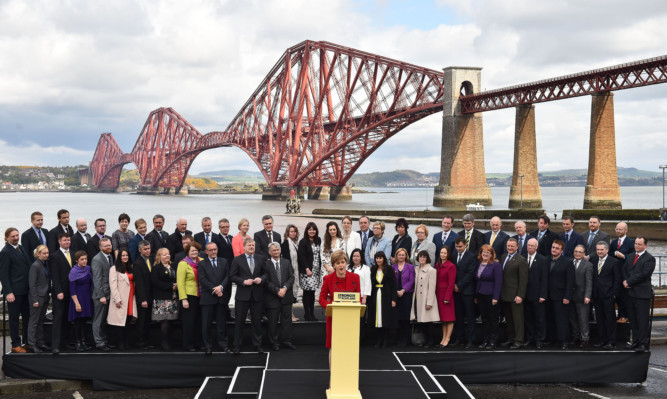First there was the earthquake. A seismic rumbling making its way toward the House of Commons in the form of 56 SNP members, the vast majority of whom have never sat on the green benches.
The aftershocks to follow have the potential to again alter the landscape of Scottish, and indeed British, politics at least as much as this incredible general election result.
Next year’s Holyrood election is the one where a second independence referendum could return to the agenda as a live issue.
In less than a year Nicola Sturgeon will have to decide whether or not to include another poll in her manifesto and, if she does, what caveats will accompany it. The make-up of the Scottish Parliament then comes into play.
Given the astounding General Election results, will the SNP secure a Holyrood majority to bring such a proposal back to the table?
The more proportional system governing Scottish elections will aid the opposition but don’t bet against it.
How the other parties line up in the aftermath of this week is uncertain.
Some feel the Tories could overtake Labour and become Scotland’s second-largest party.
That seems unlikely given they were still more than nine points behind in the popular voting stakes, but there is certainly the potential for more unexpected results. We are clearly in an unpredictable era where anything is possible once the public reaches the ballot boxes.
The 35% swing which saw the SNP’s Roger Mullin turn a 23,000 majority in Gordon Brown’s old seat of Kirkcaldy and Cowdenbeath into a near 10,000 cushion for himself was flabbergasting.
What this swathe of new SNP MPs do with themselves when they reach Westminster is an unknown quantity.
With the Conservatives commanding a majority, there is very little that can be done in practical, policy-altering terms.
Forget blocking budgets and ending austerity there is the potential for ending up with loud voices simply shouting into a vacuum.
To that end, the more experienced amongst the cohort basically the six re-elected MPs and a certain Mr Salmond will want to instil a sense of discipline and devise a strategy to ensure maximum impact is made in London.
Stopping legislation is only part of the game, though, and the election has played out exactly as they would have hoped in the short-term and in 2016.
David Cameron’s majority means blaming the “nasty Tories” is easy, while Labour’s argument that power only came through votes for the nationalists has been blown out the water by the fact they couldn’t have been caught even if every seat in Scotland had gone red.
Combine that with a loud, unified voice and suddenly the potential is there for some seriously effective grievance politics to be played.
Momentum is on the SNP’s side and they look relentless.
